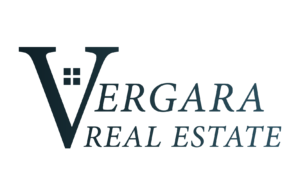What Are The Tax Implications Of Owning A Home And How Do I Prepare For Them?
Owning a home can have significant tax implications, both in terms of deductions and potential tax liabilities. Here are some key tax considerations for homeowners:
- Mortgage interest deduction: Homeowners can deduct the interest they pay on their mortgage, up to a certain amount, on their federal income taxes. This can result in significant tax savings, especially in the early years of a mortgage when most of the payments go toward interest.
- Property tax deduction: Homeowners can also deduct the property taxes they pay on their federal income taxes, up to a certain amount.
- Capital gains tax: When you sell your home, any profit you make (i.e., the difference between the sale price and the cost basis) is subject to capital gains tax. However, there are certain exemptions and exclusions that can reduce or eliminate this tax liability, including the primary residence exemption.
- Home office deduction: If you use a portion of your home exclusively for business purposes, you may be able to deduct certain home office expenses on your federal income taxes.
To prepare for these tax implications, it’s important to keep accurate records of all of your home-related expenses, including mortgage interest, property taxes, and any home improvements or repairs. You may also want to work with a tax professional or use tax preparation software to ensure that you are taking advantage of all available deductions and credits.
It’s also important to note that tax laws and regulations can change over time, so it’s a good idea to stay informed and consult with a tax professional if you have any questions or concerns about your tax situation as a homeowner.
Choosing the right neighborhood is an important part of the homebuying process. Here are some factors to consider when evaluating whether a neighborhood is a good fit for you:
- Location: Consider the neighborhood’s proximity to your work, schools, and other important amenities like Parks, shopping centers, and restaurants.
- Safety: Check the neighborhood’s crime rate and consider factors like lighting and visibility at night.
- Community: Research the neighborhood’s sense of community, events and activities, and local organizations or groups that align with your interests.
- Schools: Check the quality of the local schools, especially if you have children or plan to in the future.
- Traffic and transportation: Consider the traffic flow and accessibility of public transportation in the area.
- Housing values: Look at the housing values in the neighborhood to determine if they are increasing or decreasing, which can affect your investment.
- Noise levels: Check the noise levels in the neighborhood, especially if you are sensitive to noise.
- Walkability: Consider the walkability of the neighborhood and whether it has sidewalks, bike lanes, or other amenities that encourage walking or biking.
- Future development: Research any planned development in the area, including new construction or renovations, which can impact property values and quality of life.
- Personal preferences: Ultimately, choose a neighborhood that aligns with your personal preferences and lifestyle, whether you prefer a quiet residential area or a bustling city center.
It’s a good idea to visit the neighborhood at different times of day and talk to local residents to get a better sense of the community and if it’s a good fit for you.










Leave a Reply
Want to join the discussion?Feel free to contribute!